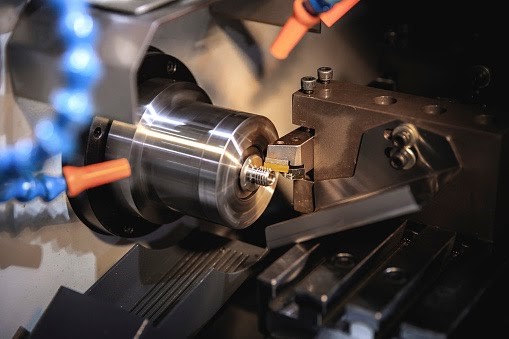Brass CNC Machining Services
AT-Machining has a wealth of expertise in brass CNC machining, enabling us to craft top-quality custom parts that can help grow your business and increase profits. Our 15-year history speaks for itself!
- Certified Materials
- Factory Price
- Tolerance as tight as ±0.01 mm
- Fast Turnaround
Save 30% cost on average!

Expert CNC Brass machining service
AT-Machining is the go-to for reliable and efficient brass components. Our ISO 9001:2015-certified machine shop offers extraordinary precision on custom designs, with options ranging from rapid prototyping to high-volume production of end-use parts. Experience quick turnaround times in a trusted environment that you can count on!
Our team of experienced professionals offers a full range of CNC machining services, such as milling, turning, and lathe work. Prices are tailored to your product’s development stage for maximum value at the best possible delivery timeframe.
At any time, our dedicated specialists are here to provide personalized support and assist you with your project goals.
We deliver high-precision brass components with CNC Swiss turning, achieving ±0.005 mm tolerances. Ideal for small, intricate parts, ensuring consistent accuracy and efficiency in large-scale production.
Our advanced 5-axis milling handles complex brass geometries in one setup. With ±0.01 mm tolerances, it provides superior accuracy, reduced lead time, and excellent finishes for demanding industries.
Multi-spindle CNC turning machines multiple brass parts simultaneously, cutting cycle times by 30–50%. Capable of 65 mm bar diameters, it offers reliable precision and cost-effective, high-volume production solutions.
We offer polishing, brushing, nickel, chrome, and gold plating for brass components. Finishes improve corrosion resistance, durability, and aesthetics, achieving surface roughness as fine as Ra 0.2–0.4 μm.

About The Material
Brass is an alloy of copper and zinc, especially metal material with more than 20% zinc content, which is the most commonly used metal material in cnc machining.
The color of the alloy will become lighter with the increase of zinc content, and its hardness will also increase with the increase of zinc content, and it will also become more brittle.
Brass has excellent properties for machining, such as:
- High conductivity
- High thermal conductivity
- Corrosion resistance
- Excellent ductility
- Suitable intensity
- Elegant and stately colors
- Excellent for Plating
Brass Alloys for CNC Machining
The most common brass alloys AT-Machining used for CNC milling or CNC turning are C260 and C360.
Working with the right alloy can prove essential for successful project completion. Each option offers its own specialized benefits, so it’s wise to look into which one will be best suited for your application needs before beginning work.
Brass Alloy Specifications & Applications Matrix
Brass alloy suitable for your project can always be found at AT-Machining
| Alloy Grade (CDA/UNS) | Key Characteristics | Common Applications | AT-Machining Notes |
|---|---|---|---|
| C36000 (Free-Cutting Brass) | Highest machinability of all copper alloys (rated 100), good strength and corrosion resistance. | High-volume screw machine parts, pipe fittings, valves, gears, fasteners. | Ideal choice for high-speed production runs. Our Swiss lathes excel with this material. |
| C46400 (Naval Brass) | Excellent resistance to seawater and salt spray corrosion, with good strength and hardness. | Marine hardware, condenser tube sheets, propeller shafts, underwater fittings. | Suitable for harsh marine environments. Material certification can be provided. |
| C23000 (Red Brass, 85%) | Excellent corrosion resistance and ductility, with a unique reddish-gold appearance. | Decorative hardware, sprinklers, light fixtures, weather stripping. | Suitable for cold working, brazing, and welding. Capable of achieving a highly polished surface finish. |
| C35300 (High-Leaded Brass) | Excellent machinability, suitable for knurling and tapping operations. | Clock and watch parts, gears, nuts, nameplates. | High surface finish, suitable for precision moving parts. |
| C26000 (Cartridge Brass, 70%) | Excellent cold workability, one of the most widely used brasses. | Ammunition casings, radiator cores, rivets, hinges, electrical sockets. | Suitable for applications requiring deep drawing and complex forming. |
CNC Machining C260 & C360
C260
C260 brass, or Cartridge Brass, is valued for its excellent formability and ductility. This lead-free alloy is ideal for CNC machined parts that require significant secondary cold working, such as bending or drawing. While its machinability is lower than leaded brass, resulting in slower production, its good strength makes it a prime choice for ammunition casings and decorative hardware.

C360
C360, known as Free-Cutting Brass, is the industry standard for high-volume CNC machining due to its superb machinability. Its lead content acts as a lubricant and chip breaker, enabling faster cutting speeds, longer tool life, and an excellent surface finish. This makes C360 the most efficient and cost-effective choice for precision components like fittings, valves, and gears.

AT-Machining
You Design It, We'll Make It.
CNC Machined Brass Applications
Machined brass is a beautiful and durable material that can be used for various projects. From watches to furniture and even handicrafts!
CNC machining offers almost unlimited possibilities when designing with this strong and soft metal; whether you are looking for small parts like beads or major components like entire frames, brass is a good choice for you!
Surface Finishes For CNC Machined Brass Parts
AT-Machining can provide the perfect finishing touch to your CNC machined brass parts with a range of powder coating, bead blasting, and plating options. Each finish offers its own advantages – so make sure you select the one that meets all your requirements!
| Name | Description | ||
|---|---|---|---|
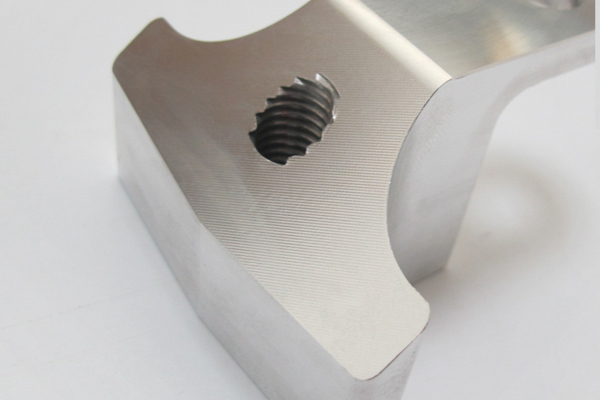
| As machined | The machined aluminum parts are left with visible tool marks and potentially sharp edges and burrs, which can be removed upon request. | |
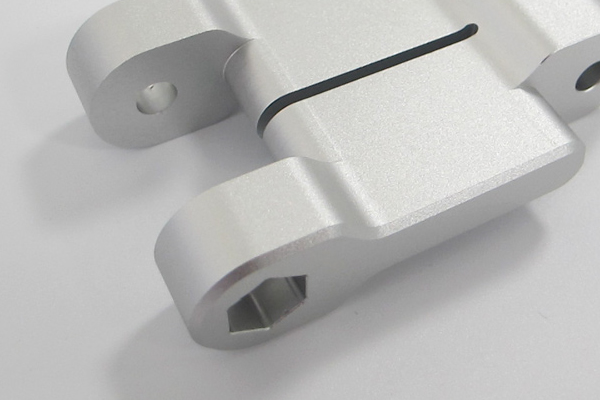
| Bead Blasted | Give the machined parts a smooth and uniform matte surface finish, thereby removing tool marks. | |
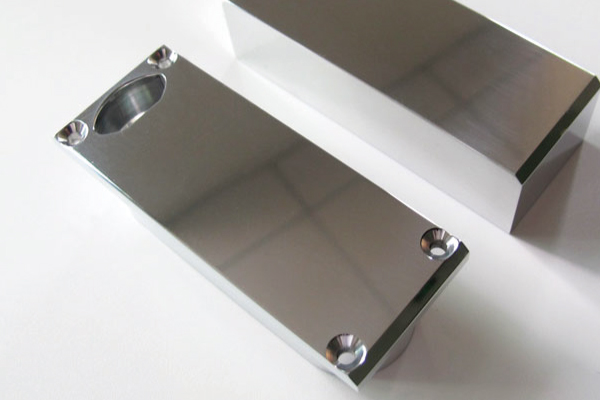
| Polishing | Creating a smooth and shiny surface by manually polishing in multiple directions or by applying a chemical polish treatment. | |
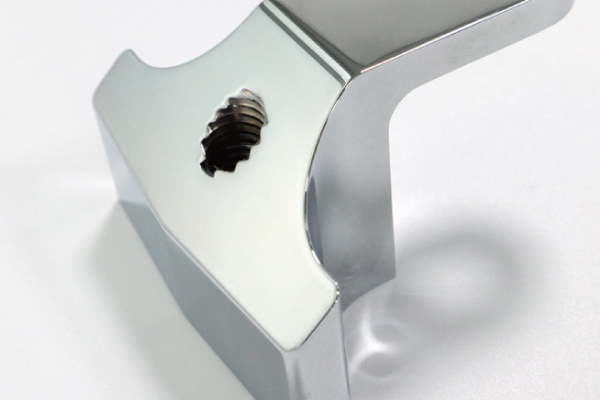
| Decorative Chrome Plating | Enhance aesthetics and durability of the cnc aluminum components. | |
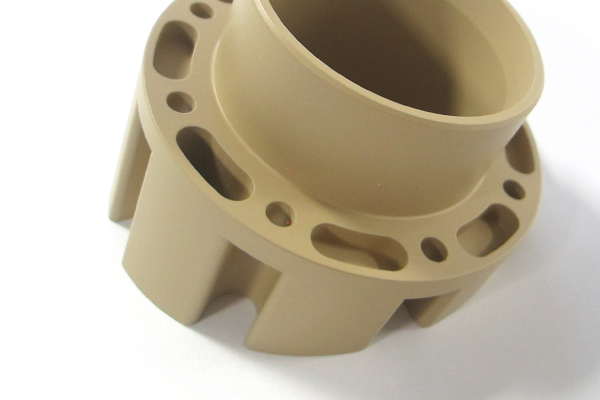
| Powder Coat | Applying powdered paint to the components and then baking it in an oven, which results in a stronger, more wear- and corrosion-resistant layer that is more durable than traditional painting methods. | |
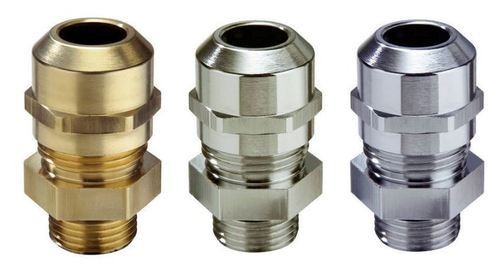
| Nickel Plating | Nickel plating refers to the plating of a layer of nickel on a metal or some non-metal by electrolysis or chemical methods make the workpiece has better corrosion resistance and wear resistance | |
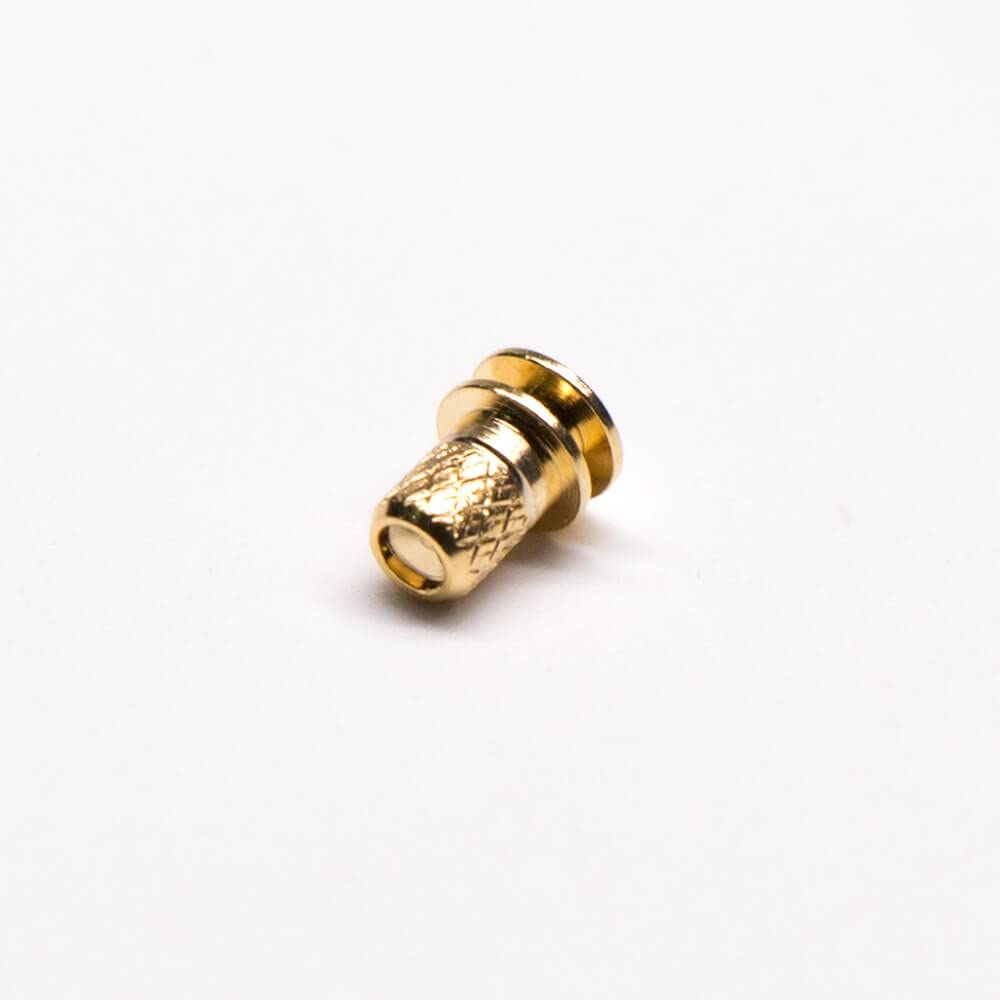
| Gold Plating | From protection against corrosion to increased conductivity and durability, gold-plated connectors offer numerous advantages. | |
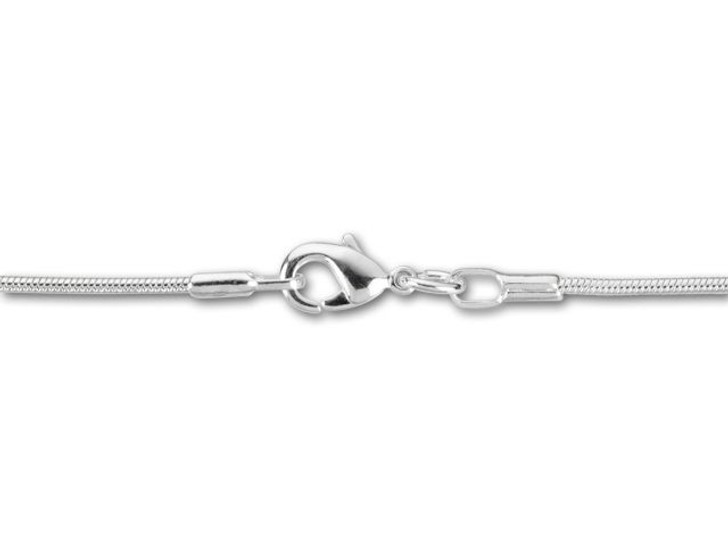
| Silver Plating | Silver plating is a process of coating materials with silver, which is also known as electrolysis. Make the workpiece better Conductivity,Corrosion resistance,Wear resistance,Durability,Solderability | |
Gallery of CNC machined brass parts
Our team prides itself on our superior manufacturing capabilities, enabling us to expertly handle the production needs of customers across a wide array of industries. From medical devices and aerospace technology to hardware startups and marine robotics – no project is too large or small for us!
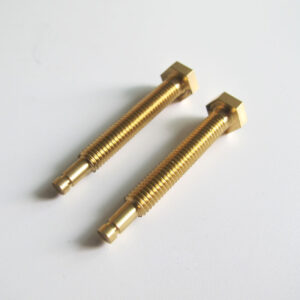
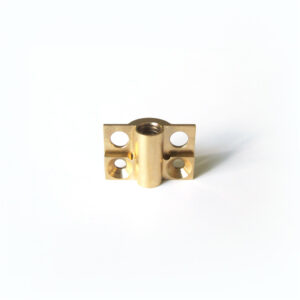
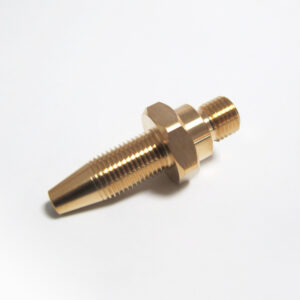
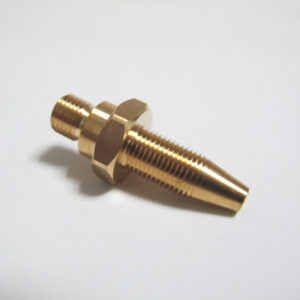
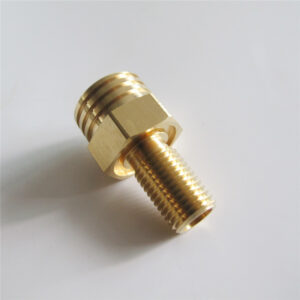
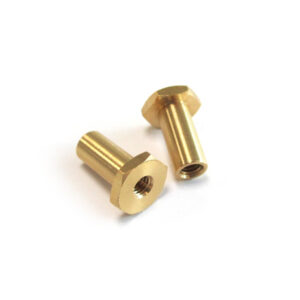
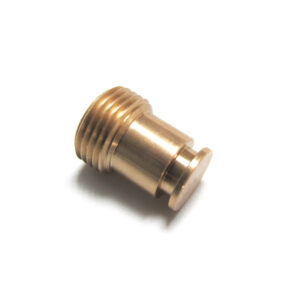
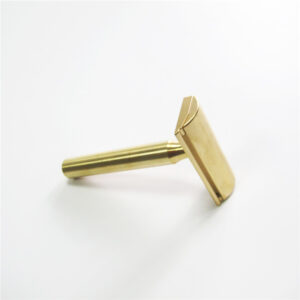

Our Quality and Reliability Commitment
Quality Assurance
Every project is supported by our ISO 9001:2015 certified Quality Management System (QMS). We provide full inspection reports (FAI, PPAP) with shipments, ensuring 100% compliance with your specifications.
On-Time Delivery
We promise reliable, on-time delivery. Project managers provide regular updates, and you can track real-time order status through our online production tracking portal anytime.
Intellectual Property Protection
We strictly protect your intellectual property. All staff sign binding NDAs, and every U.S. customer receives a legally enforceable IP protection agreement for maximum security.
Transparent Communication
A dedicated, English-speaking account manager in the U.S. ensures seamless communication, responding promptly to your needs and eliminating language or time zone barriers.
Our Happy Clients!

President

Production Manager

Engineer
CNC Machining brass FAQs
Is the hardness and strength of the material easier to CNC machine?
The higher the hardness and strength of the material, the higher the cutting force, the higher the cutting temperature, the faster the tool wears, so the worse the machinability of cutting. It is not the lower the hardness of the material, the easier to machine. Some metals such as iron, copper and other hardness is low, but the plasticity is very good, but also not easy to machine. The brass C360 with moderate hardness is easier to process. In addition, the appropriate increase in the hardness of the material is conducive to obtaining a better processing surface quality
What general tolerances can AT Machining achieve?
General Machining Tolerances on metal to +/- 0.005" (+/- 0.127 mm) following ISO 2768 unless otherwise specified. Plastics and composites will be +/- 0.010”(+/- 0.254 mm).
What precision tolerances can AT Machining achieve?
Precision Machining Tolerances down to ±.0002" (0.005mm). AT can manufacture and inspect to tight tolerances per your drawing specifications.
Is brass easier to machine than aluminum?
Yes Brass is easier to cnc machining to ideal part than aluminum. Free-machining brass is renowned for its superior cutting capabilities, due to the lubricating properties of lead added into the alloy. This allows less power and higher speeds during machining processes, resulting in reduced tool wear with excellent results every time.
What is brass CNC machining?
Brass is a remarkable alloy, combining the classic beauty of copper with the sturdiness and strength of zinc. Not only does this metal stand up to weathering and rust, but it's also easily machinable so you keep those production speeds high while saving on coolant costs!
Is brass easier to machine than steel?
While free machining steels are often seen as the benchmark of machinability, brass alloys have a distinct advantage when it comes to ease and efficiency in production - making them one of the most sought-after materials for machine work.

